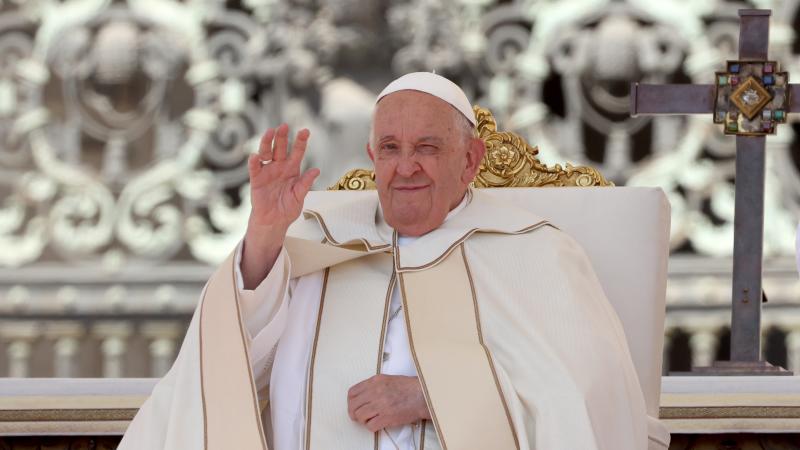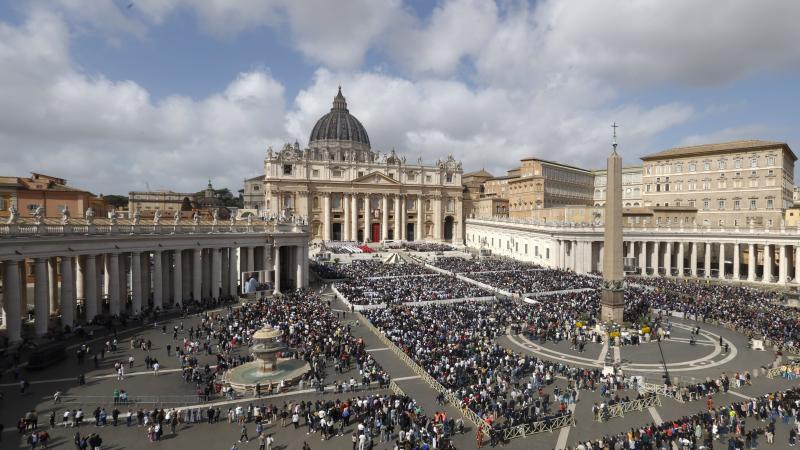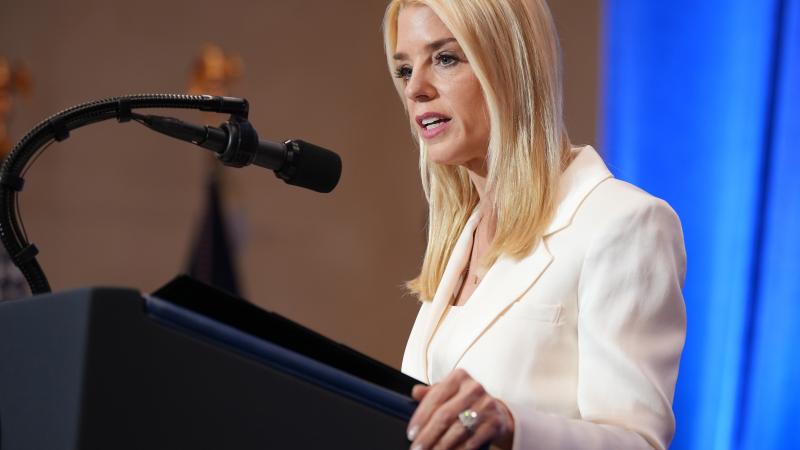Religious parents ask SCOTUS to require exemptions to LGBTQ mandates in public schools
Federal appeals court reinterpreted SCOTUS precedent as "Amish one-off" inapplicable to wealthy and religiously diverse D.C. suburb's refusal to even notify parents when they would teach "Pride storybooks," plaintiffs say.
A wealthy suburb of Washington, D.C., pulled off a coup last year, uniting Muslims, Christians and Jews against the school district for its decision not to notify parents of children as young as 3 they would be exposed to "Pride storybooks" with sex workers, kink, drag, gender transitions and elementary-age same-sex romance, or let them opt out of the instruction.
The 4th U.S. Circuit Court of Appeals sided with Montgomery County Public Schools in May, deciding not to issue an injunction against the practice challenged by parents of Abrahamic faiths in "the most religiously diverse county in the United States," in a case that prompted dozens of friend-of-the-court briefs.
Parents Tamer Mahmoud and Enas Barakat, Jeff and Svitlana Roman, and Chris and Melissa Persak, as well as the MCPS parents association Kids First, are now asking the Supreme Court to evaluate the 4th Circuit's reasoning – that no one was forced “to change their religious beliefs or conduct" in violation of the 1972 SCOTUS precedent Yoder.
The ruling "demotes Yoder into an Amish one-off" that is difficult to apply elsewhere because of the "unusual degree of separation from modern life that the Amish religious faith compels" and forces parents to accept that public schools will "disrupt" their kids' religious development.
The 4th Circuit's "result is a double standard under which religious burdens are more difficult to prove against public schools than against any other government agency," parents said.
SCOTUS must answer: "Do public schools burden parents’ religious exercise when they compel elementary school children to participate in instruction on gender and sexuality against their parents’ religious convictions and without notice or opportunity to opt out?"
Five federal circuits have said "compelled participation" is not enough to burden parents. The 8th Circuit, by contrast, "aligns with the national statutory consensus in favor of religious opt-outs for sexual education" and "how religious burdens have been analyzed in every one of this Court’s analogous free-exercise cases," the petition says.
The petition was filed Sept. 12 but the docket shows it hasn't prompted any friend-of-the-court briefs as of Sept. 20.
Nearly two dozen attorneys general led by Virginia's Jason Miyares and Jewish groups supported the parents at the 4th Circuit and the Council on American-Islamic Relations led protests for them, while liberal states and the ACLU backed MCPS in briefs.
A Minneapolis-area school district opted to avoid court months before the 4th Circuit ruled, granting opt-outs to Somali-American parents whose children would otherwise read "LGBTQ-affirming books" when their lawyers at First Liberty Institute threatened to sue.
St. Louis Park Schools initially refused opt-outs on the same basis MCPS invoked – logistical difficulty – but also suffered bad racial optics when video showed a white lesbian school board member scolding black Muslim women for not showing "solidarity" with her.
The SCOTUS petition cites CAIR and Washington Post reporting as evidence that the opposition movement was largely driven by "Muslim and Ethiopian Orthodox parents" and that MCPS board members in response compared them to "white supremacists" and "xenophobes."
The district's position and rationale has changed over time.
MCPS twice claimed, months apart, it would notify parents and let them opt out their children, then reversed itself a day after the second assertion by claiming the English Language Arts lessons were exempt from state law on notice and opt-out because they weren't part of sex education.
CAIR was already pressuring MCPS to change its gender identity bathroom policy so Muslim girls wouldn't be seen with uncovered heads by boys while they changed, and it started petitioning the district immediately for storybook opt-outs. The parents sued in May 2023.
Plaintiffs and CAIR accused MCPS of misleading the trial court with its logistical argument against opt-outs, citing teacher-training materials and a meeting with officials that suggested the decision was driven by LGBTQ students' feelings and desire to change children's thinking.
MCPS explicitly told employees who choose books to use an "LGBTQ+ Lens" and ask whether "cisnormativity" and "power hierarchies" are "reinforced or disrupted" in them.
A district judge nonetheless found parents "failed to demonstrate a cognizable burden to the free exercise of their religion" and the 4th Circuit agreed, saying Yoder "has been markedly circumscribed within free exercise precedent in the decades since it was decided."
The Supreme Court petition says Mahmoud and Barakat pulled their "impressionable" young son from MCPS after the district court's ruling to protect him from instruction and activities on gender, sex and sexuality that "undermine Islamic teachings."
So did the Orthodox and Catholic Romans in light of the fact "their young son inherently 'loves' and 'implicitly trusts' his teachers," while the Roman Catholic Persaks said their daughters are "highly impressionable to ideological instruction … in children’s books or by schoolteachers."
One Kids First member Grace Morrison has an adopted daughter with Down Syndrome and attention deficit disorder, whose "capacity to make independent judgments is impaired" even more.
The girl's Catholic parents were "religiously compelled" to remove her from MCPS because her teacher wouldn't give them a curriculum schedule with the timing for Pride storybooks, and now they have spend $25,000 in therapy and academic support that was once free through the district.
The parents all object to MCPS confusing their children into believing that gender identity can be separated from biological sex, which is at odds with their faiths.
The petition argues the 4th Circuit misread Yoder on the "fundamental interest of parents" to guide their children's religious education but also ignored "the line of cases" stemming from 1963's Sherbert, which prohibits eligibility requirements for unemployment benefits that interfere with "key religious principles" such as Seventh-Day Adventists resting on Saturdays.
The appeals court, also known for prohibiting public schools from segregating restrooms by sex, "ignored, or got wrong" other free exercise precedents, most recently former high school football coach Joe Kennedy's right to pray on the field after games, the petition says.
It "contradicts centuries of our history and traditions," reasoning that "parents cannot be heard until after the damage has been done to their children," it says. "But there is no unringing that bell – by then, innocence will be lost and beliefs undermined."
The plaintiffs promoted the dissent by Judge Marvin Quattlebaum, who said the district's religious diversity guidelines give it “discretion to grant religious opt-out requests" and that it did so "throughout much" of the year regarding the storybooks. Quattlebaum argued Maryland law doesn't let MCPS circumvent notice and opt-out by adding sex ed "to other classes."
The Facts Inside Our Reporter's Notebook
Links
- they would be exposed to "Pride storybooks"
- 4th U.S. Circuit Court of Appeals sided
- "the most religiously diverse county in the United States,"
- 1972 SCOTUS precedent Yoder
- The petition was filed Sept. 12
- docket shows it hasn't prompted
- Nearly two dozen attorneys general
- Council on American-Islamic Relations led protests
- liberal states and the ACLU backed MCPS
- granting opt-outs to Somali-American parents
- same basis MCPS invoked â logistical difficulty
- petition cites CAIR
- Washington Post
- reporting
- MCPS twice claimed
- months apart
- reversed itself a day after
- CAIR was already pressuring MCPS to change
- parents sued in May 2023
- accused MCPS of misleading the trial court
- 1963's Sherbert, which prohibits eligibility requirements
- prohibiting public schools from segregating restrooms by sex
- former high school football coach Joe Kennedy's right to pray
















